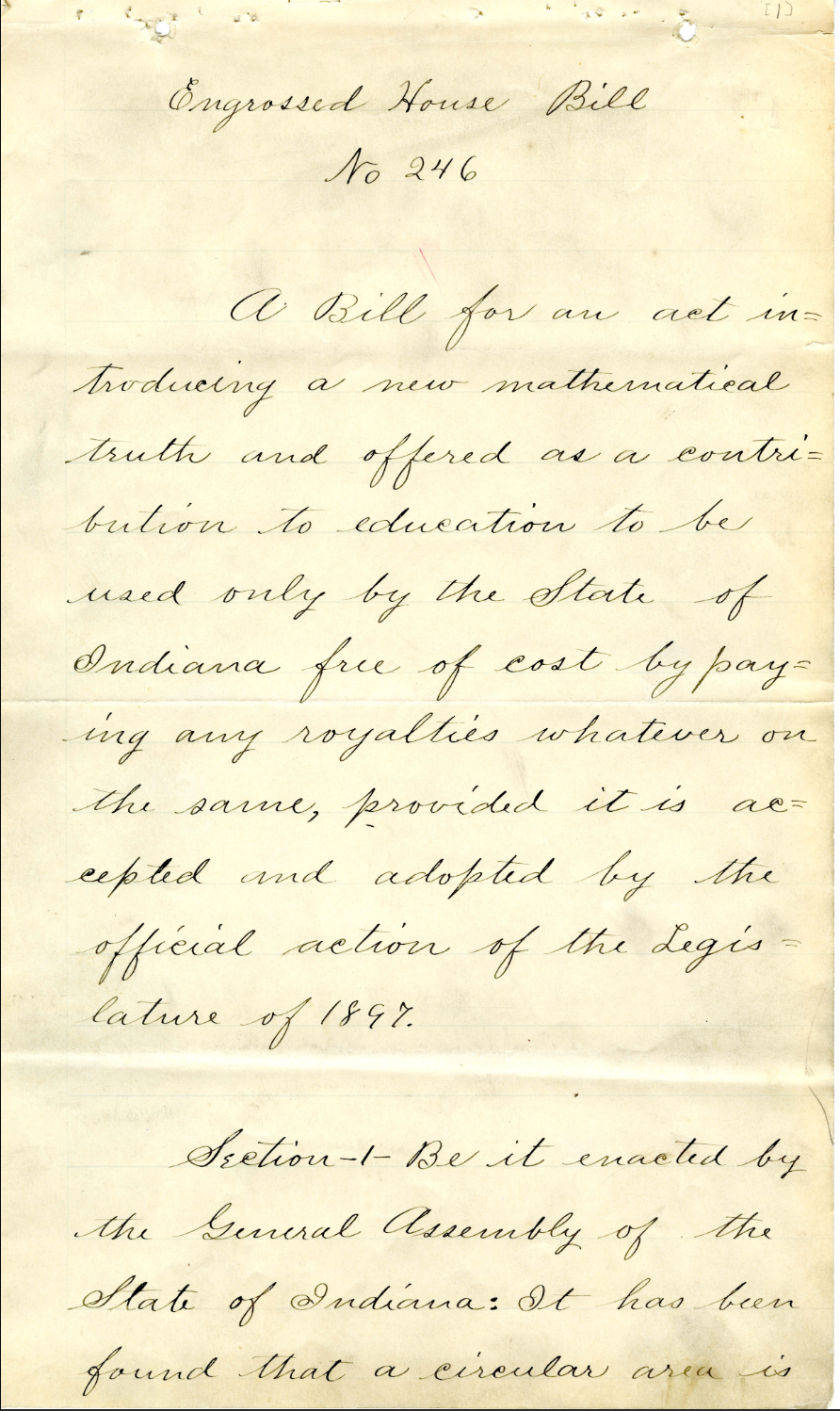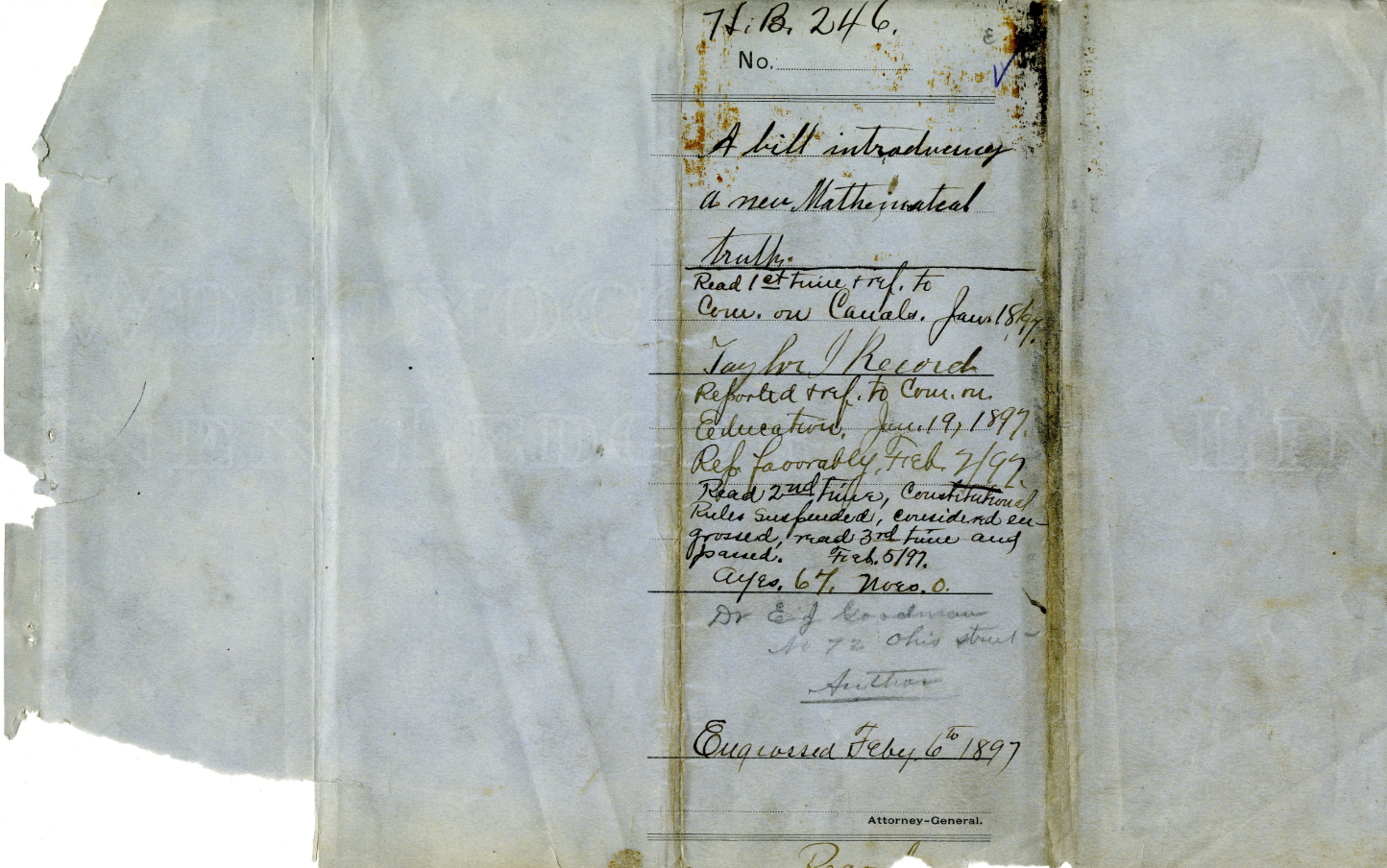House Bill 264, 1897, the Indiana "Pi Bill "
 Every March 14th will see a spate of new articles on today’s subject, the infamous Indiana Pi Bill.
Every March 14th will see a spate of new articles on today’s subject, the infamous Indiana Pi Bill.
House Bill 264 of 1897 was introduced by the representative from New Harmony, Taylor I. Record, but was composed by Dr. Edward Johnston Goodwin. While Dr. Goodwin’s education and medical credentials were as legitimate as any, he did not have any training or experience in mathematics. Despite or possibly due to this, he believed that he had solved the ancient mathematical problem of “squaring the circle” and had therefore created a new and much simpler value for Pi – 3.2. In reality, he had misunderstood the basic premise of the problem and made several groundless assumptions.
 Perhaps unsurprisingly, Record, the part-time farmer and part-time legislator, accepted and submitted the bill for the esteemed Dr. Goodwin. While Goodwin’s theory was not accepted by anyone of note, he managed to get it published early in the life of American Journal of Mathematics "by request of the author” meaning that it was not vetted nor peer reviewed. He recounted this publication and some vague endorsements by named academics to journalists, who also often did not question his theory. At one point he was slated to speak at the Chicago World’s Fair, but was removed shortly before the event, presumably when he encountered someone that knew his theory was utterly flawed. He also had a supposed academic endorsement denied or questioned on more than one occasion. However, when recounted in most of the newspapers his accomplishments are listed without their caveats.
Perhaps unsurprisingly, Record, the part-time farmer and part-time legislator, accepted and submitted the bill for the esteemed Dr. Goodwin. While Goodwin’s theory was not accepted by anyone of note, he managed to get it published early in the life of American Journal of Mathematics "by request of the author” meaning that it was not vetted nor peer reviewed. He recounted this publication and some vague endorsements by named academics to journalists, who also often did not question his theory. At one point he was slated to speak at the Chicago World’s Fair, but was removed shortly before the event, presumably when he encountered someone that knew his theory was utterly flawed. He also had a supposed academic endorsement denied or questioned on more than one occasion. However, when recounted in most of the newspapers his accomplishments are listed without their caveats.
The combination of Dr. Goodwin’s reputation and the bill’s nearly inscrutable language and subject matter most likely got it through both the Canal and Education committees without amendment or comment, and it was engrossed by the House without issue. It was also approved by the Senate Committee on Temperance but was indefinitely postponed when it was read the the Senate a second time. The bill received no recommendations at any point of the process. Its failure is often attributed to Professor C.A. Waldo of Purdue, who was in Indianapolis to secure appropriations of the University and was able to explain to some Senators why the bill should not be adopted.
Images: Right - The Pi Bill as written by Dr. Goodwin. Left - The cover sheet to the Indiana General Assembly file.
ref. Hallerburg. House Bill 264 Revisited. Proceedings of the Indiana Academy of Science, 1974.

